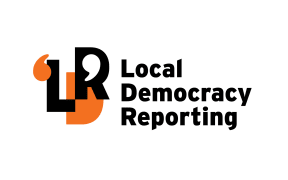Māori ward campaigners are thrilled the Labour government is using urgency to push through a bill to get rid of a public veto on Māori wards.

Whakatāne Māori wards campaigners Toni Boynton and Danae Lee (centre and left) are excited there may soon be Māori wards on the Whakatāne District Council following Local Government Minister Nanaia Mahuta’s (left) announcement the government will be looking at changing the law. Photo: Supplied
Whakatāne women Toni Boynton and Danae Lee of Te Rōpū Tautoko Māori were at the forefront of the town's own battle to have Māori wards instated on the district council in 2018, but lost out through a binding poll in which less than 50 percent of the voting population took part.
Māori wards are the only wards in which five percent of voters can call for a binding poll to overturn a council decision to implement them.
There are no sections within the Local Electoral Act that give voters the same rights to demand a similar poll when a decision is made to create other wards, such as rural.
Labour's bill, which had its first reading yesterday, seeks to remove this poll provision.
If the bill passes it would mean the nine councils seeking to install Māori wards before the next elections would not be subject to a poll.
Boynton said the law change would ensure there was Māori representation on councils, which could create a legacy for future Māori leaders.
"Because those nine councils will not be subjected to a poll, the community will not be subjected to or suffer through a prolonged campaign of racism from lobby groups like Hobson's Pledge," she said.
"I'm relieved for those communities that they will not have to go through what we went through."
Following the defeat of Māori wards in Whakatāne, the group set out to force a law change and presented Minister of Local Government Nanaia Mahuta with a petition late last year.
A lot of this had been driven by the community, and Boynton said there had been an evolution and shift in thinking from the community since.
She said as the bill was being passed under urgency there wasn't much time for unhappy people to make noise, however, she and the rest of the group would be doing some mahi to lessen that noise.
"It's really, really exciting but there is still some work to be done," she said.
"It's time to turn to councils and iwi to have conversations and see if we can have Māori wards on the Whakatāne council for the next elections. So, we are gearing up for that and looking at how the community can support us in doing so."
Whakatāne Mayor Judy Turner said although she would like to see Māori wards installed on the Whakatāne District Council, it was something the council would need to work through.
"We know we have some very keen activists in Whakatāne who would like to see this advance and be responded to quickly, so we will need to look at it this year," she said.
"Because of the current law, we thought we wouldn't be able to look at it again until after the next election, but this is a game changer, and we are obviously keen to hear from all interested parties."
Turner said if council was to install Māori wards before the next election, it would have to resolve to do so by May.
"People are keen to get cracking, but we need to get our heads around the look and feel of what that would mean, how many seats and so on. A lot of that is a bit of an unknown at present.
"Absolutely, we are expecting it to be an issue we will need to front up to and address and listen and consider what people want. But first, we need to get our heads around the legislation."
Before Mahuta indicated the government would be changing the law surrounding Māori wards, Ōpōtiki District Council had resolved to include a poll at its next election asking if the community would like to see Māori wards installed.
Ōpōtiki Mayor Lyn Riesterer said this was something she personally would still like to see happen.
"I still think that's the right way through for us to gauge the community's thinking around this," she said.
Riesterer, who is Māori, said Ōpōtiki was in a unique situation in that most of its population was Māori.
She said the council was planning to run information and education campaigns on Māori wards ahead of the election next year and thinks this should still go ahead.
"We need to let people know what it might look like and how it might enhance, or not, representation in local government.
"We have very even representation now, but that doesn't necessarily mean it will stay like that. I know our council needs to have a thorough look at what Māori wards would mean for us. What it might look like; we haven't worked that out."

Local Democracy Reporting is a public interest news service supported by RNZ, the News Publishers' Association and NZ On Air.

